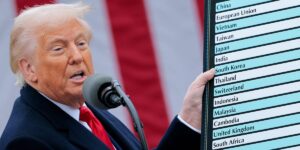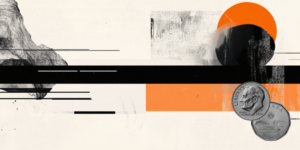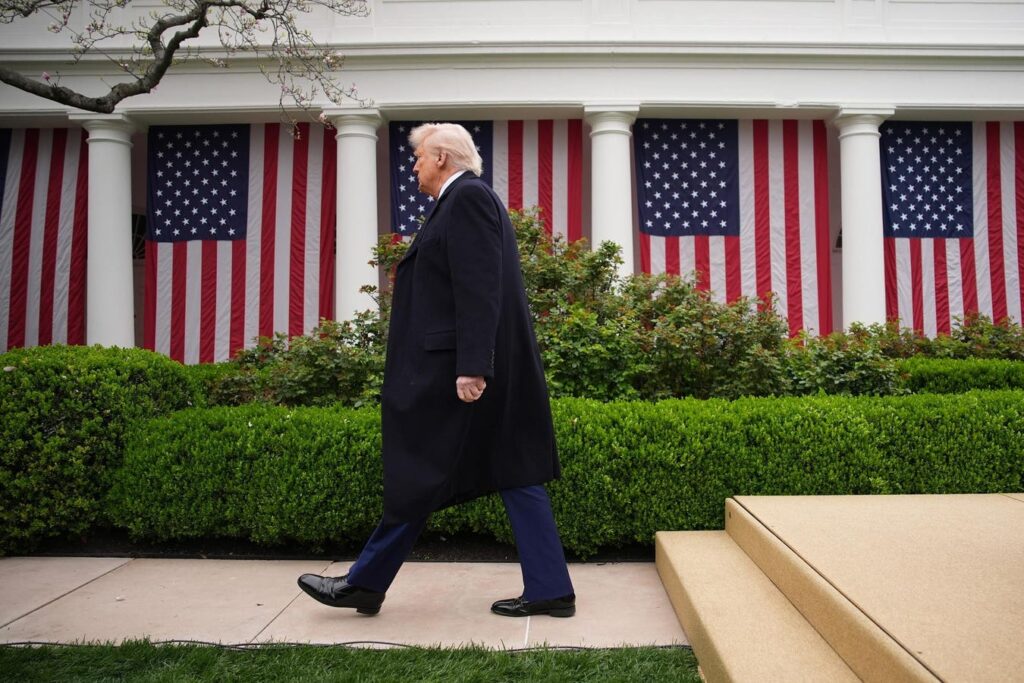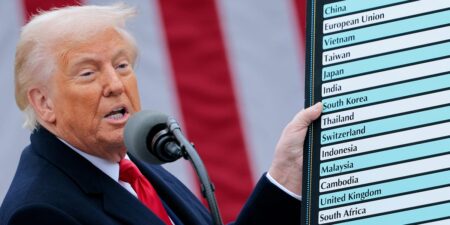The newswires are replete with anecdotal arguments about why the markets will or won’t rebound from President Donald Trump’s comprehensive tariffs. People who assert that markets will return draw our attention to the early 2000s when the market adjusted to steel import tariffs under President George W. Bush even though most experts braced for perpetual financial chaos. People who assert that market will not return focus on how the 2018 U.S. tariffs on China allegedly were not a one-off negotiating tactic but a move that compelled firms to dismantle and rebuild supply chains and rethink the fundamentals of globalization. While many people will agree with the facts about historical incidents, these scenarios do not allow to predict the future about how the current tariffs will unfold. In addition to considering anecdotes, we need to focus on the overall arguments on both sides. The following explores the logic behind the arguments about whether and how markets will bounce back and uses an unconventional approach to determining which one is more compelling.
The Economy Will Bounce Back
Tariffs, while disruptive, are generally perceived as short-term political interventions and not as long-term structural shifts, and investors have learned to distinguish between short-term volatility and long-term fundamentals. Monetary easing by central banks can mitigate the damage, and businesses are adept at restructuring supply chains to pass on costs. When policy certainty slowly reemerges—either in negotiated trade deals or change in the ballot box—confidence tends to rebound, resulting in a rebound of consumption, and market valuations. The general argument that markets won’t rebound in the short to medium term from tariffs relies on the assumption that these trade barriers are an indication of a deeper, more structural shift towards long-term protectionism and economic fragmentation. According to the Council on Foreign Affairs and the International Institution of Economics, the current tariffs are unilateral and politically driven rather than part of a coordinated shift in global trade rules or institutions, meaning they reflect temporary policy choices rather than a fundamental reordering of the global economic system.
The Economy Will Not Bounce Back
As opposed to earlier instances, the current tariff wave—particularly under Trump—represents a deviation from the rules-based international trading system, introducing enduring uncertainty undermining investor confidence. Stephen Miran, who is current chair of the Council of Economic Advisers, argues that Trump’s tariffs a part of a strategy that also includes, currency interventions, and security-linked trade agreements aimed at reducing U.S. trade deficits and reviving domestic manufacturing. This strategy is part of the proposed “Mar-a-Lago Accord,” which seeks to realign international economic relationships while maintaining the U.S. dollar’s status as the global reserve currency. Tariffs are a tax on buyers, taking away buying power and cutting demand. All in all, this volatility, reduced investment, and slowed growth foretell that markets may remain subdued well beyond the initial shock.
While both sides use economic arguments to make compelling arguments, a psychological perspective compels me to believe that some of the fears are exaggerated while a legal concern is what we should be most worried about right now. Amid the diverging opinions of pundits on both sides of this issue, all parties can agree on one thing: President Trump is unpredictable and the economic future is uncertain. Uncertainty is the most powerful emotion at play and is driving the doomsday narrative, which is based in part on uncertainty bias. The fact that we do not know for sure what will happen next makes people with a low tolerance for ambiguity uneasy, often triggering an overreaction to situations and an overestimation threats. We have seen economies of all sizes bounce back from drastic changes and this one will be no different. According to Larry Summers, an American economist who served as United States Secretary of the Treasury from 1999 to 2001, the primary concern for the American people should not be barriers to trade but the erosion of the country’s judicial institutions. In an interview on GZEO World media, he said, “economies move in cycles, economies fluctuate. Even egregious economic policy errors can be reversed and economies can recover. But the rule of law and traditions of democracy, once those are lost… they often are not regained.” (Ian Bremmer interviews Larry Summers on GZERO World, April 9, 2025)
Read the full article here
















